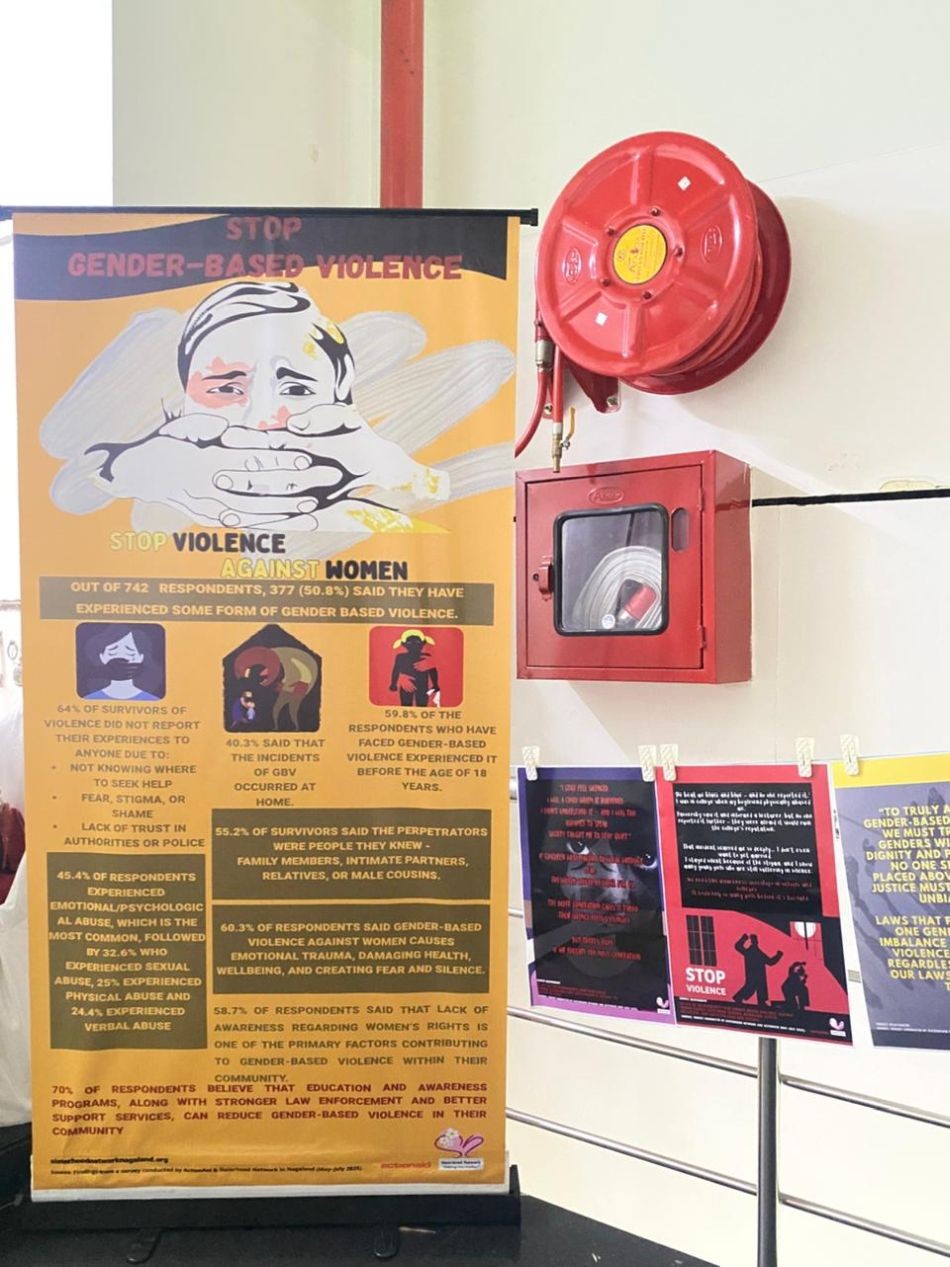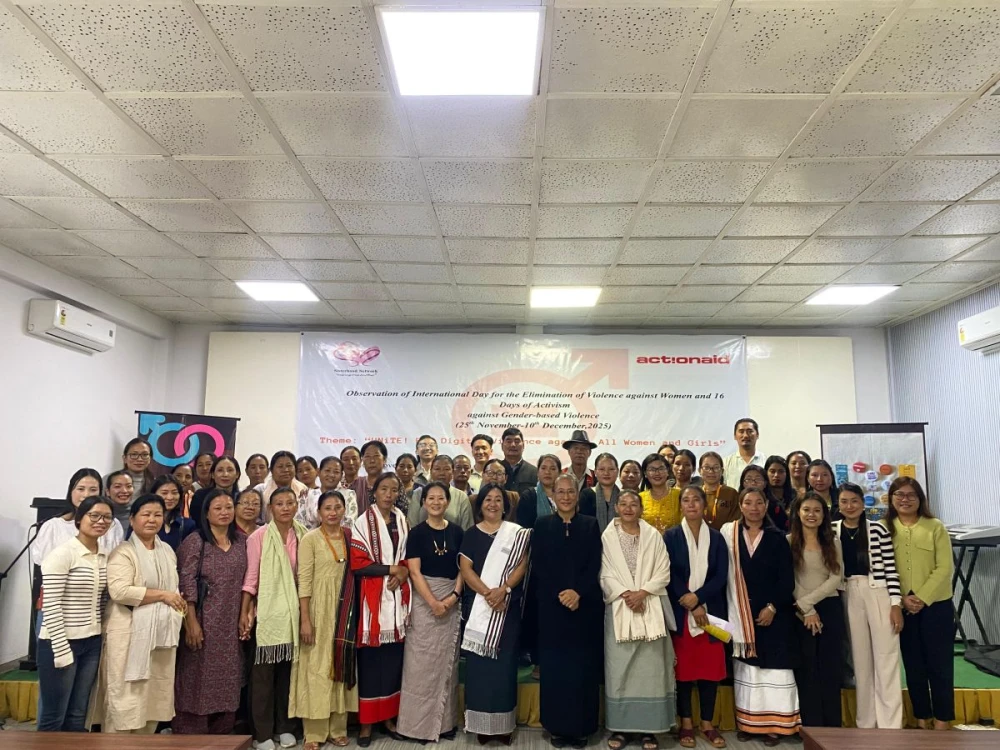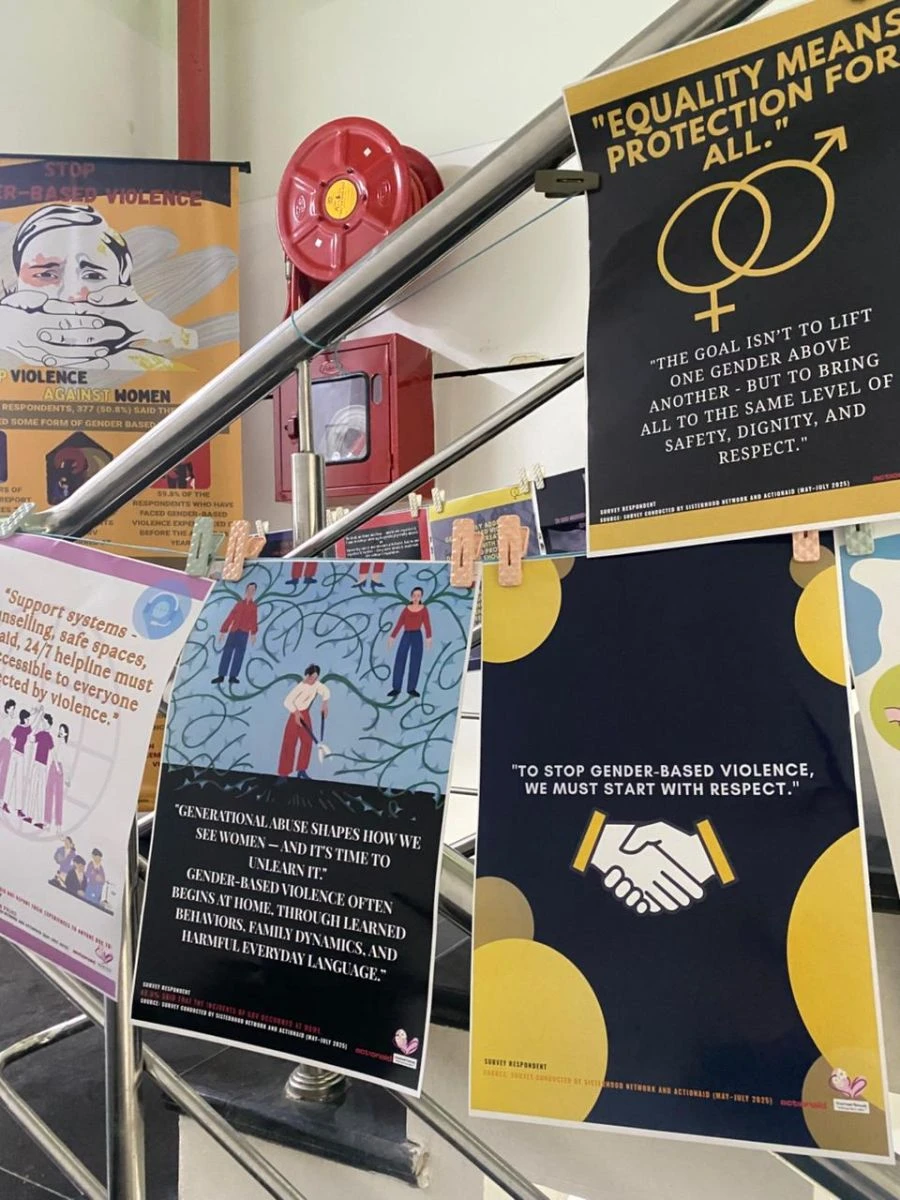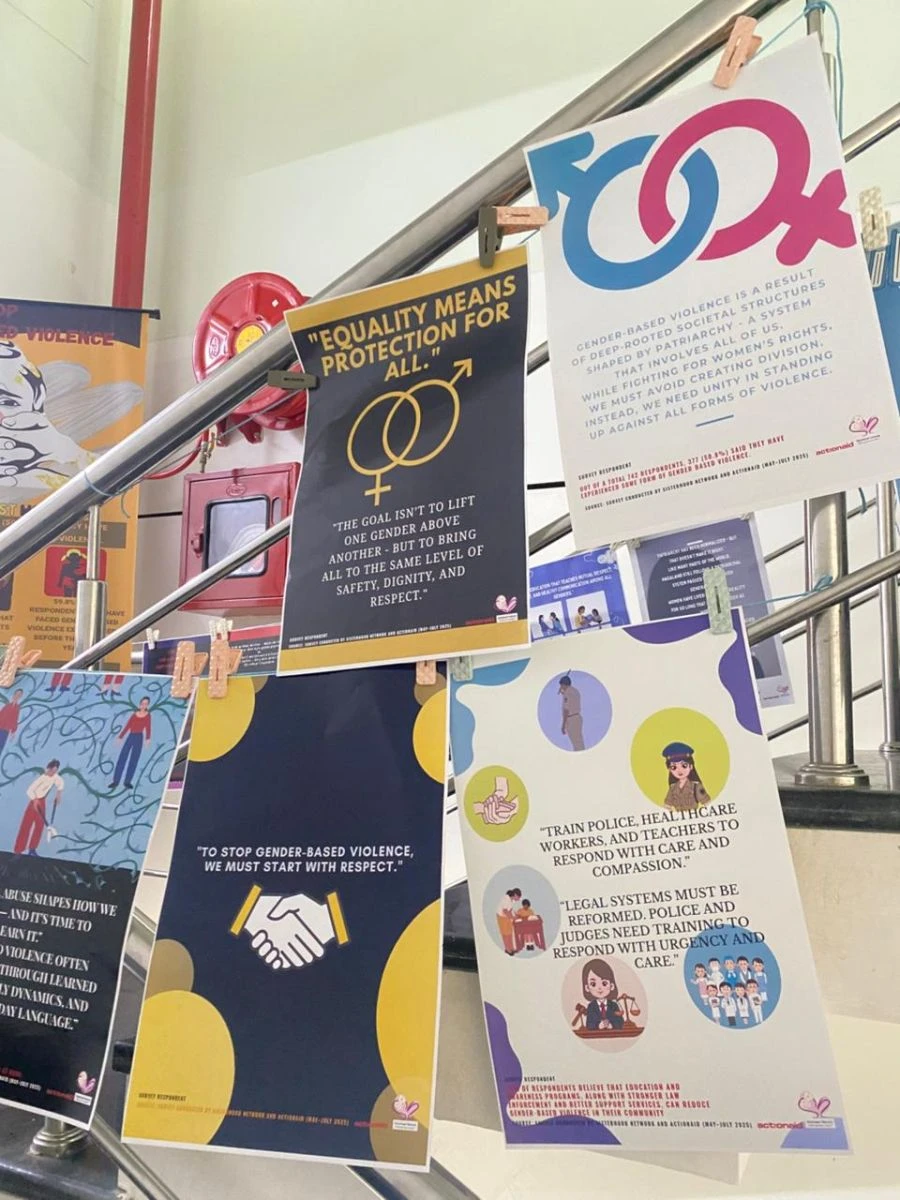
Societal stigma, other factors drive high under reporting
Morung Express News
Dimapur | November 26
A recent survey by the Sisterhood Network (SN) has revealed alarming levels of gender-based violence across Nagaland, alongside a high rate of underreporting due to multiple underlying factors.
Carried out between May and July 2025, the survey covered the districts of Kiphire, Kohima, Dimapur, Tseminyu, Noklak, Tuensang, Peren, Mokokchung, Chümoukedima, and Zunheboto.
According to the SN, a Nagaland-based non-profit organisation working with women, children, and marginalised communities, the survey received responses from 742 individuals, of whom 377, or 50.8%, reported having experienced gender-based violence.
SN Director Azungla James noted that the survey coincided with the ongoing 16 Days of Activism Against Gender-Based Violence, which the organisation has been observing for the past ten years.
The report was presented to Nagaland State Commission for Women (NSCW) Member Kekhrienuo Meyase during an event marking the 16 Days of Activism at Orchid Hall, Hotel Saramati.

The programme brought together a close-knit community of women, along with a few men from neighbouring villages, who shared their challenges and aspirations.
Emotional abuse leads; perpetrators often known
According to the survey, emotional and psychological abuse emerged as the most common form of violence, affecting 45.4% of respondents. Sexual abuse was reported by 32.6%, while 25% experienced physical abuse and 24.4% faced verbal abuse.
Concurrently, the findings indicated that 40.3% of the incidents took place at home, and 59.8% of survivors experienced violence before the age of 18.
The survey found that perpetrators are often known to the victims with more than half of the survivors (55.2%) identifying family members, intimate partners, relatives, or male cousins as their abusers.
Despite the high incidence of violence, 64% of survivors, as per the survey, did not report their experiences, citing fear, stigma, lack of trust in authorities, or uncertainty about where to seek help.

Respondents recognised the profound impact of gender-based violence, with 60.3% acknowledging its emotional and psychological toll, damaging health and wellbeing, and creating a climate of fear and silence.
Lack of awareness regarding women’s rights was identified by 58.7% as a major contributing factor to gender-based violence in their communities.
In response to these challenges, 70% of survey participants said that education and awareness programmes, coupled with stronger law enforcement and improved support services, could play a pivotal role in reducing gender-based violence.
Confronting the silence
Speaking on the theme, ‘UniTE! End Digital Violence against All Women & Girls,’ Dr Alongla Aier, Founder of SN and Emeritus Professor, Oriental Theological Seminary (OTS), urged communities to confront the silence surrounding abuse and take decisive action to uplift women and girls.
She stressed the importance of voicing experiences, encouraging survivors and witnesses to confide in trusted mentors, family members, or church leaders.
“Breaking silence is the first step toward relieving fear and addressing the burden of violence,” Dr Aier underscored.
Reflecting on societal attitudes, she called for a transformation of patriarchal mindsets, reminding communities that men and women are inherently equal and should be treated as such, both in families and society.
She further challenged fathers, brothers, and community leaders to take a proactive stand, advocate for women, and work toward eliminating discrimination.
Meaningful change begins when communities actively champion women’s rights, resist inequality, and inspire younger generations to embrace respect and equity, Dr Aier asserted.
‘Not make-up stories’
Speaking on behalf of the concerned State Department, NSCW’s Meyase pointed to the deep-rooted challenges facing women in the state and called for stronger community support and systemic reforms.
Many struggles women endure, especially those from marginalised communities, are daily realities ‘from morning till night,’ she held. “This is the truth, not make-up stories.”
Meyase further noted that Nagaland is navigating a delicate transition between tradition and modernity, and while customary laws and the Christian social environment offer women a degree of freedom, entrenched societal attitudes still silence many survivors.
Shame, family honour, the fear of legal procedures, financial cost of filing cases, and even lack of empathy within law enforcement contribute to persistent underreporting, she added.

The NSCW member also highlighted that marginalised women bear the brunt of violence but remain the least able to report it due to societal stigma and fear. Even educated women deny or conceal abuse out of embarrassment, further discouraging other women from speaking up, she maintained.
Drawing from her experience at the Commission, Meyase called for greater tolerance, empathy, and compassion in responding to survivors.
She said the NSCW regularly visits jails to ensure fair treatment of women inmates, noting that many are imprisoned for drug-, alcohol-, or narcotics-related offences rooted in poverty, limited education, or lack of male support. Economic pressures, she added, have pushed some young women into exploitative situations, exposing them to serious health risks.
State Govt urged to act
Meyase urged the State Government to establish state-of-the-art rehabilitation centres for women within Nagaland for recovery, reintegration, and long-term support, pointing out that survivors currently depend on facilities in Assam and Meghalaya.
Highlighting women’s vulnerability during crises, she said women are often both the first responders and the first victims during disasters such as floods or fires, where they struggle to secure shelter and basic necessities.
She added that women are also frequently used as objects of vengeance and remain “at the receiving end” of many social conflicts.
Accordingly, Meyase called for stronger government support, noting that economic dependency remains a major factor keeping women in vulnerable situations.
Calling for a united effort, she asserted that progress for women requires participation from the entire community.






